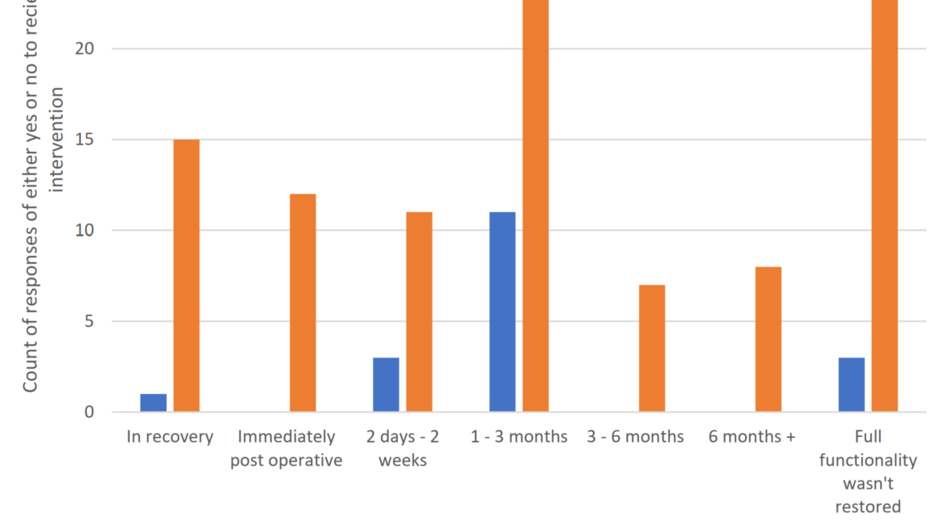
A Critical Review of Rehabilitation Techniques
We are grateful to Claire Johnston for sharing the attached article. It is a summary of her Veterinary Physiotherapy BSc dissertation.
[Claire Johnston (VP) – Tails Therapy, Animal Physiotherapy – As A Project In Part Fulfilment of The Requirements for the Bachelor’s Degree In Veterinary Physiotherapy BSc (Hons) At Plumpton College - 2023]
A Critical Review into The Rehabilitation Techniques Utilized by Neurological Veterinary
Specialists for The Recovery of Dogs Following an Intervertebral Disc Disease Diagnosis
IVDD Article PDF.pdf
Adobe Acrobat document [449.2 KB]
The main takeaway from this research is due to the individual nature of VP, it is very difficult to assess the most effective course of action
to improve recovery, and owners of IVDD patients could do everything theoretically correctly in relation to surgery, rest, and physiotherapy and yet due to the severity of the
herniation, their dog may still never restore full function.
However, in order to give dogs, the best chance at not requiring long-term pain medication following an IVDD diagnosis, the combination of surgery and physiotherapy has shown to
be incredibly effective.
This study demonstrates a need for more thorough research into the most effective
protocols of rehabilitation for dogs suffering from IVDD and the elements that can either
worsen or aid in recovery outcome times.
Meanwhile, ongoing management will likely be required to discourage the reoccurrence of corresponding discs within the vertebrae, although the most effective methods need to
be studied in a quadruped species to confirm if this is something that can be proven successful.
Overall, the results support the use of VP for IVDD patients to reduce the need for ongoing pain management to be used, as well as a greater outcome being achieved
when strengthening exercises were utilised as well as PROM. The complexity of IVDD rehabilitation and treatment strategies was also underlined, emphasising the need for greater
study in order to produce the most efficient durations, frequencies, and processes that may be defined and then modified to accommodate the individual.

